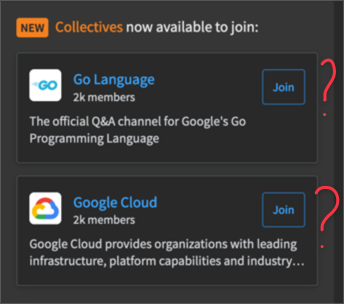How does Stack Overflow plan to avoid conflict of interest with the new Collectives model? I would like to specifically focus on the recognized user feature. I see two main problems with collectives having the power to "recognize" a particular user as being elevated in some way over other users.
For the first point, I can give the example of Microsoft or Amazon (AWS) collectives. Doubtless, they will choose users who have at least a decent level of expertise. But how can we be assured that the "best" answers given by these recognized users won't be influenced by things like corporate politics or profit? The answer is that we don't know this at all. Let's say that there is a certain AWS question. The accepted might belong to a recognized user. But there could be another answer which might also be correct yet be lower cost in certain ways over the accepted answer. How can that Amazon recognized user be expected to give the best answer, if perhaps doing so might hinder profitability? How can we be certain that the recognized user would always answer in the best interest of the Stack Overflow community, if giving that best answer might not meld with with the internal politics of the company he/she/it/them is representing?
For my second point, I would like to point out that sometimes an answer given by a third party independent open-source minded guru can be superior to one from a recognized user coming from just one collective. If I were perusing Stack Overflow on tags such as Java, SQL, or C#, I might very well come across a Jon Skeet or Gordon Linoff post. Both of these experts have literally spent their entire careers working at some of the top tech jobs in the business. To give an example, let's say that I were reading a SQL Server question, and I see an answer by Gordon Linoff as well as the recognized user for Microsoft. I would tend to gravitate towards Gordon's answer, because he has a large breadth of experience of how SQL interacts and behaves with the real world. The recognized answer might be technically correct, but I might tend to view it as one-sided and insider.
For both of these examples, I view recognized users as a risk because it promotes and rewards content based on something external to the site. And as such, this feature can be influenced by things like profitability and politics.

